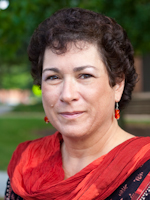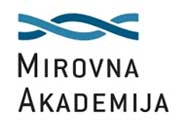 Jayne Docherty
Jayne Docherty
Professor
Biography:
Jayne Seminare Docherty is a professor of conflict studies at the Center for Justice and Peacebuilding at Eastern Mennonite University. She has also taught at George Mason University and Columbia College (South Carolina). Professor Docherty earned her Ph.D. at the Institute for Conflict Analysis and Resolution at George Mason University and she holds an undergraduate degree in religious studies and political science from Brown University. She also studied theology at the University of St. Andrews in Scotland.
Professor Docherty consults with organizations and communities in transition, working with them to harness the positive energy of conflict and minimize its negative effects. Her current area of focus for research, writing and practice is improving the use of negotiation in unstable situations so that the results yield durable but flexible systems for creating long-term and sustainable peace with justice. She has also conducted research – especially action research projects – for nonprofit organizations; consulted on designing, monitoring and evaluating projects and programs; worked with universities on curriculum development; and conducted trainings on conflict analysis, negotiation, and program design.
For the next three years, her practice focus will be on Lebanon and Burma/Myanmar. In Lebanon, she is working in collaboration with The Institute for Peace and Justice Education at Lebanese American University on a multi-year effort to develop and institutionalize a summer peacebuilding training program for young leaders interested in building peace in Lebanon. In Burma/Myanmar, she is working as a consultant and trainer with groups that are supporting the transition from military to civilian rule with the goal of promoting sustainable peace with justice for the country.
Professor Docherty is a member of the Board of Directors for the Peace Appeal Foundation an organization that “supports peace and conflict resolution processes globally through inclusive, multi-track and multi-sector interventions designed to achieve agreed, fair and just outcomes.” She is also a member of the Association for Conflict Resolution where she served as Chair of the Research Section (2004-2007), the International Peace Research Associaton where she has served on the Council (2006-2008), and the International Studies Association (ISA).
Professor Docherty is a member of Blessed Sacrament Catholic Community in Harrisonburg, Virginia. Her work is deeply influenced by Catholic teachings on peace and social justice.
The daughter of a career military officer, Professor Docherty now serves as a consultant with the 3D Security Initiative. She has a strong interest in forging a peace movement that takes the issue of security seriously and that includes the voices of active and retired military personnel. She was involved in the early efforts to adapt the Seminars for Trauma Awareness and Resilience program for use with communities that are welcoming soldiers returning from Iraq and Afghanistan, a project that helped lay the foundation for the Transforming the Wounds of War program.
Professor Docherty is the author of two books:
- Learning Lessons from Waco: When the Parties Bring Their Gods to the Negotiation Table (Syracuse University Press),
- The Little Book of Strategic Negotiation: Negotiating During Turbulent Times (Good Books),
- and a significant contributor (four chapters) to The Negotiator’s Fieldbook: The Desk Reference for the Experienced Negotiator (American Bar Association).
She is also the author of numerous articles in journals such as Terrorism and Political Violence, Nova Religio, and the Marquette Law Review. Her work on culture and negotiation has been incorporated into three different textbooks used in law schools around the country.
Education:
- A.B., Brown University (1978) Religious Studies and Political Science
- Ph.D., George Mason University (1998) Conflict Analysis and Resolution
Publications:
Press Interviews and Media Citations
• Seattle Post-Intelligencer Five Years After 9/11: Metaphor of War
• Vital Theology
- “Cultural gaps separate most in U.S. from Muslims here and abroad: Meanwhile, Islam confronted with competing fatwas.” August 20, 2005.
- “Is marginalization of Muslims at root of bombings: Governments seen repeating mistakes of Waco.” July 30, 2005.
• Lessons from Waco by Wallace Ford. First published in Albuquerque newspaper on December 26, 2001. Posted on Foreign Policy in Focus on January 8, 2002.

